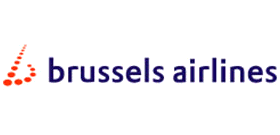 Brussels Airlines Reverses Cancellation of Flights to Liberia
Brussels Airlines Reverses Cancellation of Flights to Liberia
Brussels Airlines has backtracked on its plan to cancel all flights coming to Liberia after being told by authorities of the Roberts Airport Authority that it has met the required technical and operational prerequisites for the safe landing of aircraft.
The Belgium-based airline, which flies at least twice a week -- connecting the country with Europe and the United States had earlier announced the cancellation of flights to RIA on grounds that the airport was suffering from deficiencies that hindered the smooth landing of aircraft in accordance with international operating procedures.
However, a day after making such an announcement, Brussels Airlines said that it would return to the RIA on September 18.
"On September 16, Brussels Airlines received the official confirmation from the local authorities that the required technical and operational prerequisites to operate are fulfilled," Brussels Airlines said in a release. "The Belgian airline will therefore resume its operations between Brussels and Monrovia as of this moment, with the next scheduled flight on September 18."
The return of Brussels Airlines returns avert a national economic loss in the short-term -- helping to keep the RIA, which is struggling financially to stay afloat. RIA heavily depends on revenue from service fees paid by airlines.
When a commercial aircraft such as Brussels Airlines lands at RIA, it pays fees for landing, parking, and other services, as well as fuel. Meanwhile, the airliner's flight crew uses hotels, and vehicle rentals and so that will be a loss in revenue for the country, especially being the largest airline flying to Liberia.
Brussels Airlines is the largest and most consistent air carrier flying to Liberia, bringing in more people than any other airline, most of which are sub-regional airlines. It is used by lots of Diaspora Liberians flying back home for holiday trips during December.
However, the airline was leaving Liberia due to RIA experiencing a malfunctioning navigation system, forcing Brussels Airlines to use its own system to land at the airport, which is extremely dangerous.
The airport had also faced problems with its localizer, another important navigation system, which is needed to aid in the smooth landing of aircraft. A localizer is used to provide pilots with both vertical and horizontal guidance during an approach to land.
